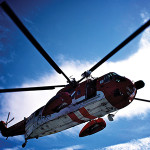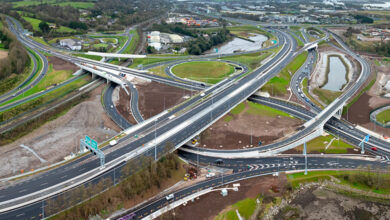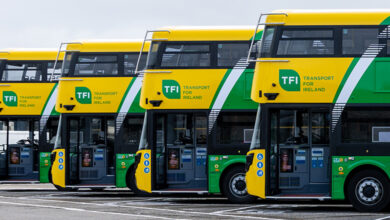Maritime safety shore-up
 A new strategy aims to reduce fatalities and emphasises personal responsibility for safety at sea.
A new strategy aims to reduce fatalities and emphasises personal responsibility for safety at sea.
In the past five years, the Department of Transport, Tourism and Sport has annually invested around €67 million into maritime safety. However, an average of 11 people still lose their lives in maritime incidents each year. Indeed, over the last 12 years there have been 137 deaths at sea. In the same timescale, the Irish Coast Guard responded to 10,377 distressed or urgent calls from fishing, recreational and merchant vessels and has saved around 180 lives per annum.
These findings are contained within the latest Irish Maritime Administration (IMA) strategy, ‘Make time for maritime safety’. The recreational and fishing sectors are identified as being the most at risk. Between 2002 and 2013, 49 per cent of maritime fatalities occurred during recreational pursuits while 39 per cent of those who died were aboard a fishing vessel. The Marine Casualty Investigation Board has compiled a list of major factors in sea accidents, which include the lack of an enhanced maritime safety culture, inadequate equipment or crew training, failure to appropriately plan journeys and impairment due to fatigue, drugs or alcohol.
The strategy, covering 2015 to 2019, contains five main themes: information and communication; search and rescue; standards; enforcement; and data and evaluation.
The communication of maritime health and safety information to particular groups, as well as to the wider public, is prioritised. The IMA will intensify its communication efforts e.g. through educational talks in schools, a biannual marine gallantry and meritorious service award, and by holding a maritime safety conference (the first is to be held later this year).
Emergency response time is crucial when a maritime incident occurs. Knowledge of what action to take is also essential to maximise a person’s chances of survival. The will continue to improve the management of search and rescue operations and use advanced technology e.g. by integrating the three rescue co-ordination centres at Dublin, Valentia and Malin Head, promoting the use of position-indicating radio beacons, and developing a real-time shared incident logging and analysis system.
Health and safety standards require that vessels and equipment are highly maintained, whilst crews are trained and competent in their roles. It is important that vessels and seafarers adhere to regulatory requirements. The IMA will continue to set standards for the seaworthiness of craft and the competency of crew.
The maritime sector is governed by domestic, European and international legislation. The new strategy places a significant emphasis on the enforcement of existing legal obligations. Fundamentally, people going to sea must take these requirements seriously, comply with the law and avoid irresponsible or risky behaviour.
Currently, maritime accident statistics which could be used to make safety decisions are inadequate. These records need to be collated and coherently organised before being made available to stakeholders.
Rather than introducing and implementing new regulations, Transport Minister Paschal Donohoe has called for a change in maritime safety culture and responsibility for personal behaviour. Describing maritime deaths as potentially avoidable, he maintains: “It is up to each individual who takes to the water to take personal responsibility for their actions and to understand that failure to operate safely puts not just their own life at risk, but the lives of others on board and potentially the lives of emergency and rescue personnel.”





